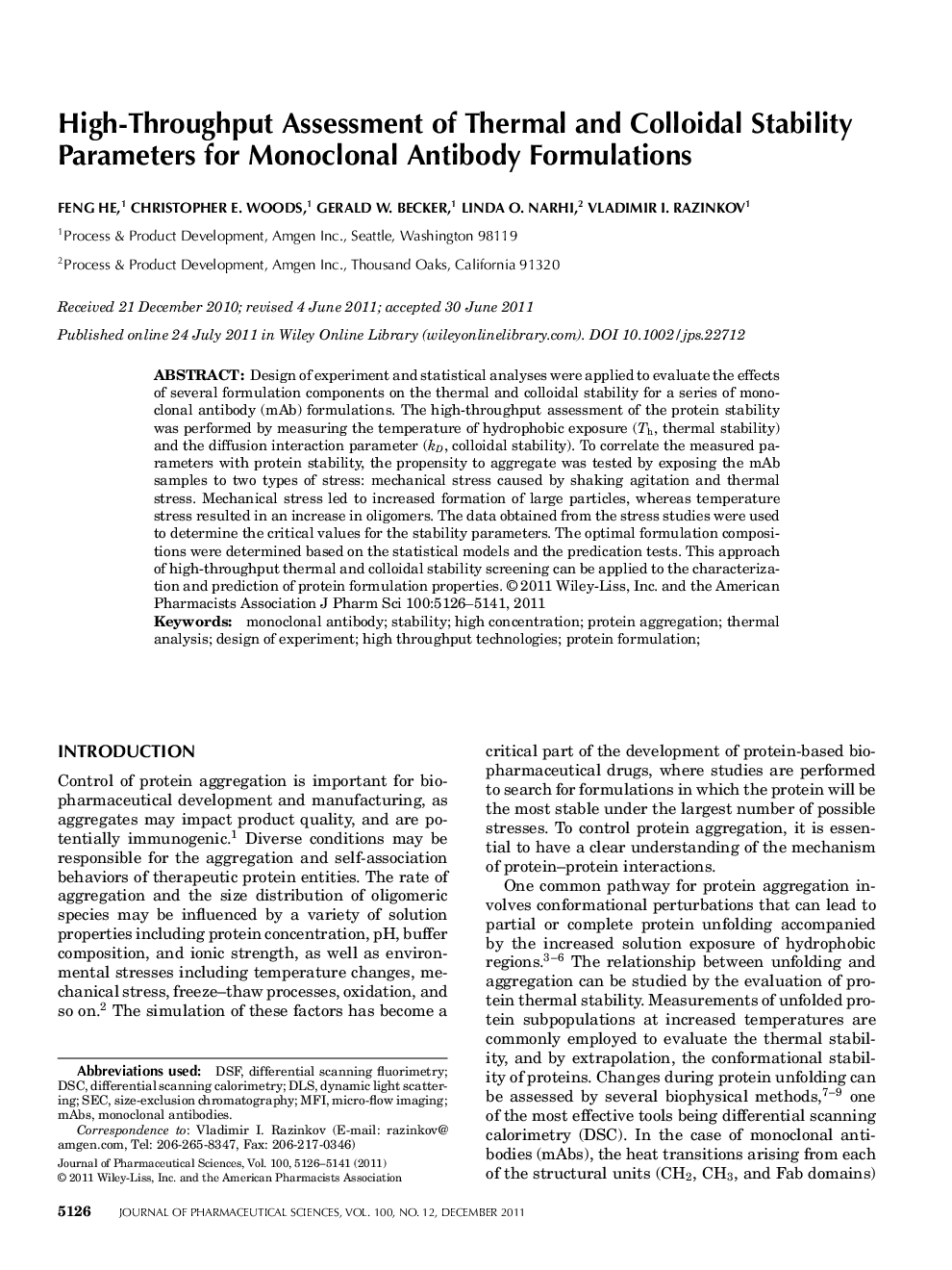| Article ID | Journal | Published Year | Pages | File Type |
|---|---|---|---|---|
| 2486135 | Journal of Pharmaceutical Sciences | 2011 | 16 Pages |
Abstract
Design of experiment and statistical analyses were applied to evaluate the effects of several formulation components on the thermal and colloidal stability for a series of monoclonal antibody (mAb) formulations. The highâthroughput assessment of the protein stability was performed by measuring the temperature of hydrophobic exposure (Th, thermal stability) and the diffusion interaction parameter (kD, colloidal stability). To correlate the measured parameters with protein stability, the propensity to aggregate was tested by exposing the mAb samples to two types of stress: mechanical stress caused by shaking agitation and thermal stress. Mechanical stress led to increased formation of large particles, whereas temperature stress resulted in an increase in oligomers. The data obtained from the stress studies were used to determine the critical values for the stability parameters. The optimal formulation compositions were determined based on the statistical models and the predication tests. This approach of highâthroughput thermal and colloidal stability screening can be applied to the characterization and prediction of protein formulation properties.
Keywords
Related Topics
Health Sciences
Pharmacology, Toxicology and Pharmaceutical Science
Drug Discovery
Authors
Feng He, Christopher E. Woods, Gerald W. Becker, Linda O. Narhi, Vladimir I. Razinkov,
